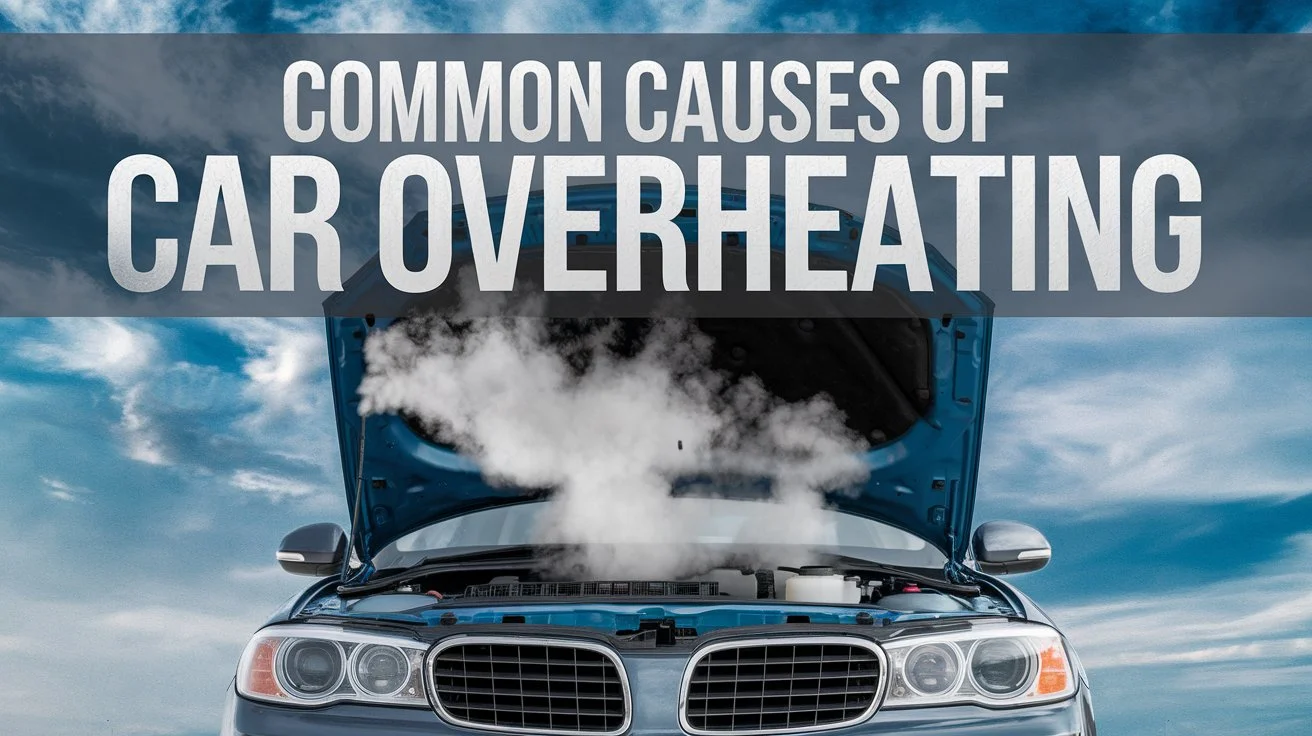 Date: October 03, 2024
Date: October 03, 2024
Who would not get annoyed and freaked out to see smoke coming under the hood while taking a summer drive? Engines can get overheated and do, and further damage can take place if the right precautions and measures are not taken. Overheated engines cause damage and waste your trip.
Fasttrack Emarat is here to help you make sense of the reasons for overheating engines and possible things to do when your automobile starts overheating while in motion.
What is a cooling system?
It's better to understand just what an engine's cooling system does before going into reasons why an engine can begin to overheat. The overall cooling system keeps a standard operating temperature for the engine by circulating coolant, or antifreeze, through the engine to the radiator, thus pulling heat away from the engine.
What happens in an overheating engine?
Today's engines are generally constructed to be durable, but when the heat produced by a vehicle's motor is significantly higher than its operating temperature, the components designed to dissipate this heat buildup may start failing in some cases, even permanently damaging not only the engine but also the gaskets, hoses, and seals that keep an engine in operation.
Some of the common causes of overheating include;
- Cooling system leaks
- Blocked hoses due to corrosion and mineral deposits
- Radiator problems or broken water pumps
Regular checks may prevent overheating problems from arising in the future.
What To Do If Your Car Starts Overheating?
If the dashboard lights come on in your car, and you even have a pungent smell coming from your car's engine, or smoke, or your car just doesn't drive right, then observe these precautions for your car.
1. Pull over and assess the situation
The moment you sense something's wrong with your car, it's best to pull over to a clear safe location, off the traffic and stop. If it's running hot and potentially damaging an engine, you would be taking significant risks driving anywhere.
2. Move only if unavoidable
If you cannot slow down and stop safely, driving at a slow rate of speed may continue to allow air to flow around the motor and provide extra help to the cooling process. Waiting for someone in your car does not take into account the heat generated since you stopped, which can quickly add to the heat being given off by your engine.
3. Switch on the heater
Yes, that's true. If one can still move the vehicle, turning off the air conditioning and cranking up the heat high may suck some more heat from the engine.
4. Roll down all the windows
The principle behind this should be to allow as much heat to leave the vehicle as possible. By rolling down and opening as many of them as is possible to roll down, then one will let the heat out of the vehicle also.
This is when a call for service or roadside assistance becomes the best alternative.
Common causes of hot engines
There are many reasons a car engine can become overheated. Some examples of this may be relatively easy fixes, such as filling your antifreeze. Other causes may be permanent if not addressed properly by a qualified mechanic.
Here is a list of common causes for which a car's engine would overheat:
1. There is insufficient or no coolant
Driving without the proper levels of coolant/antifreeze may cause failure in the coolant system. The level should be refilled to the recommended levels by the manufacturer if it is below the recommended level. If you have to add new coolant to an empty reservoir, only 50% antifreeze/coolant and 50% water should be added. If you are not sure where to find the coolant reservoir tank, nor how to refill it properly, refer to your vehicle owner's manual.
2. Leaks in cooling system
A dry coolant reservoir tank can be because of a possible leak. Stains or pools on the ground may often indicate leaks in the coolant.
Coolant may have a sweet smell and come in green, blue, or orange color depending on the coolants used
3. Faulty water pump
The function of the water pump is to circulate the coolant in the engine. If it gets too dirty or accumulates too much, it can shut down the coolant from circulating through the pump, which may initiate an overheating scenario.
4. Issues in the Radiator
Radiators and their fans cool the engine by lowering coolant temperatures. Defects in the fans may reduce the ability of the radiator to shed heat, which will obviously increase temperatures.
5. Oil too low
Apart from lubricating its parts, motor oil in a car regulates general temperatures. Low oil levels may raise the temperatures of the engine.
6. Thermostat failure
In a car, the thermostat is just like the thermostat in a house; it is a necessity in maintaining the temperatures of an engine. Damage of the thermostat can be caused by failure of the coolant in circulating as it is required of it by the manufacturer.
7. Problem with the belts and hoses
If coolant hoses leak, become blocked or ruptured, or if belts are worn or frayed, their ability to ensure air and coolant flow to and from the engine and related systems will be limited and may lead to unanticipated damage to the engine. For more information, please visit our Belts & Hoses services .
8. Heater core is plugged up
If the engine's heat exchanger unit is clogged or blocked, coolant flow will be hindered, which can lead to overheating in the engine of a car.
How to prevent your car overheating?
Keeping in mind a few of quick tips that you can be sure of while driving will eventually reduce permanent damage to the engine in future
- Constantly check the coolant levels of your car
- Keep a spare bottle of new antifreeze as well as a gallon of water in your trunk
- Monitor the thermostat of your car while driving
- Do not overuse air condition of the car on very hot days
- Assist in cooling the engine by using the heat once the first sign of overheating has been detected
Additional Tips
Here are some additional tips to keep a check on your car overheating.
Monitor for warning lights:
Be aware of your dashboard, specifically whenever the overheat light is on. It may alert you beforehand of potential issues with your car's engine. When warning lights appear, pull safely over and assess the situation. If you ignore these lights, major damage may be triggered in your car's engine system, and fixing them may be expensive.
Check coolant temperature gauge:
Just keep an eye on the coolant temperature gauge and notice if there are any abnormal spikes or erratic readings. If the needle shoots up beyond the normal range, that is likely to mean that there is a problem with the cooling system, and it should be taken care of on time, as overheating may damage the engine.
Use quality coolant and antifreeze:
Choose the right coolant type with the ideal mixture, following the manufacturer's guidelines. Superior coolants provide better control of the temperature. It prevents rusting and corrosion in the engine. And unnatural system inefficiencies are developed when the wrong coolant is used.
Check hoses and belts regularly
As hoses and belts tend to fail without warning, a regular check avoids sudden failure. Check for signs of wear, cracking, or fraying. Immediate replacement of damaged hoses and belts will keep an efficient cooling system down the road.
